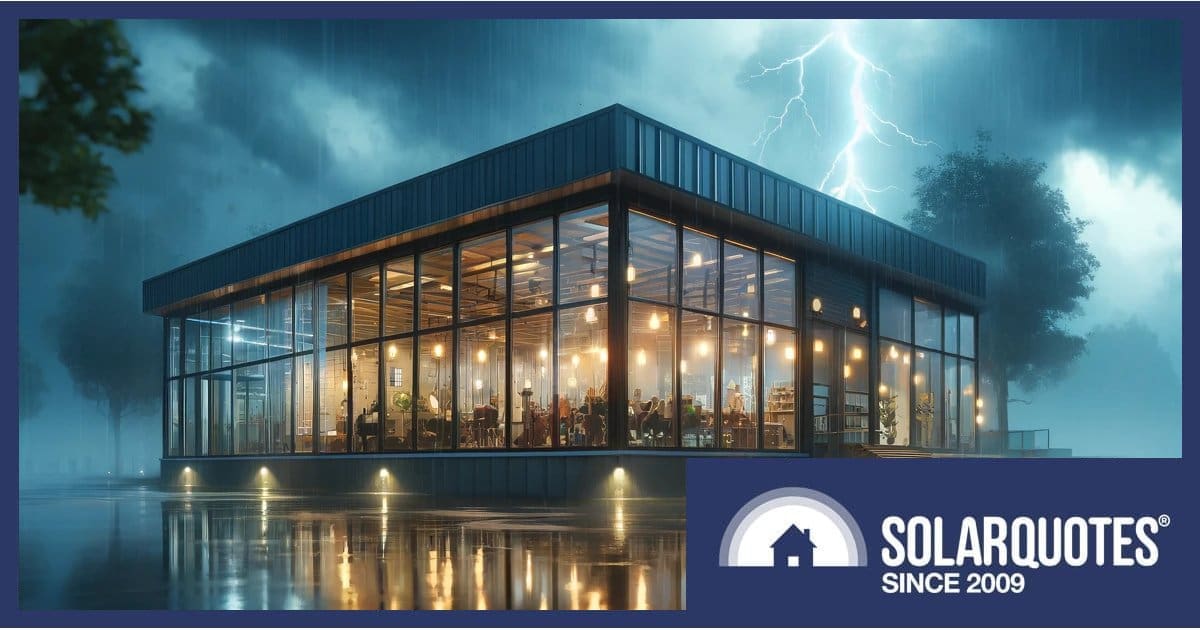
Another energy resilience hub was launched in Victoria yesterday – and some Victorian households have already set up their own (of sorts).
In response to the 2021 storms that wreaked havoc on electricity supply in the state and the threat of future climate-related extreme weather events, the Victorian Government’s $7.5 million Energy Resilience Solutions (ERS) program has been providing funding for solar panels, batteries and back-up generators at community buildings in two dozen towns pegged as being at high-risk of blackouts.
These community hubs will provide storm and outage impacted residents facilities to cook meals, charge devices and access information during an extended blackout. The communities will also benefit year-round from having cheap renewable energy providing clean electricity supplied to the buildings.
The majority of systems have been installed – the latest at Monbulk in the Yarra Ranges Shire local government area; launched yesterday by Minister for Energy and Resources Lily D’Ambrosio. The remaining installations in Healesville and Apollo Bay are expected to be completed by September this year.
Commenting on the initiative, Member for Monbulk Daniela De Martino said:
“Weather events like the February 2024 storms are becoming more intense and frequent, so it’s critical for the Monbulk community that our electricity distribution system is equipped to support people when outages occur and that Victorians are reconnected as quickly as possible.”
In the February event, more than 530,000 electricity customers across the state were left without power at its peak – similar to the event in 2021. An independent Network Outage Review commissioned by the Government is being undertaken and will provide recommendations concerning the operational response of energy businesses.
Victorians Are Doing It For Themselves
The ERS program is a great idea, but some Victorian households are taking the power into their own hands by installing home batteries alongside their solar panels to weather such events (and for other reasons).
While the cost of solar batteries presents a barrier for many, there is some state government assistance available.
Interest-free loans of up to $8,800 are on offer under the Solar Homes program to help eligible Victorian households install a solar battery. 4,500 loans were made available in 2023-24, and as at Monday there were still 2,144 left for this financial year.
Important: Choose The *Right* Battery
A battery purchase decision shouldn’t be rushed.
Some households have forked out thousands of dollars for a battery, only to discover it provides no blackout back-up, or backup hasn’t been set up correctly, or the panels won’t charge the battery when the grid is down – which is particularly problematic in the event of an extended outage. For example, in the February 2024 event around 50,000 electricity customers still hadn’t been reconnected after 48 hours.
And there are several other mistakes commonly made. SolarQuotes Founder Finn has published a guide describing the biggest mistakes he’s seen people make when buying a home battery, and how to avoid them. It’s well worth a read.
Another strategy being used by some households towards increased energy resilience involves electric vehicles; which essentially are really big batteries on wheels. Some EVs can provide power to various household appliances via a special lead or socket in the car. This is called Vehicle to Load (V2L), and there are a couple of other more advanced technologies – Vehicle to Home (V2H) and Vehicle to Grid (V2G). Learn more about V2L, V2H and V2G here.

 RSS - Posts
RSS - Posts



Speak Your Mind